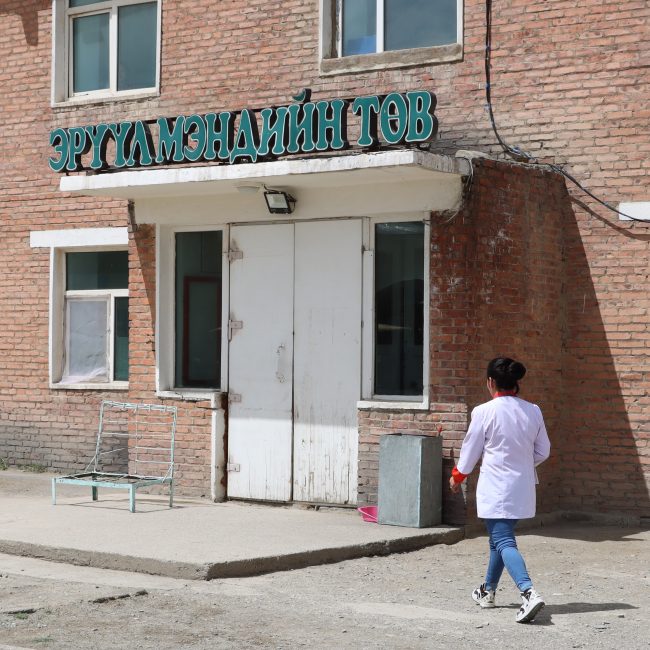Health Project
The UN Convention on the Rights of Children stipulates that “every child has the right to quality health care, drinking water, and nutritious food. Developed countries should provide assistance to developing countries in this regard”. One of Save the Children’s goals is to ensure that children grow up in good health.
Our Mongolia Program integrates health issues into a wide range of other programs, such as Education and Child Protection. For example, the Education Program includes initiatives to support the care and development of young children, including children’s health and nutrition.
We have supported child protection in Mongolia’s health sector since 2010 by improving the response of health workers to the protection of children at risk and victims of violence. In cooperation with the Ministry of Health, the Mongolian National University of Medical Sciences (MNUMS), and the Forensic Hospital, the program developed the first child protection curriculum and handbook for medical students.
The course outlines the basic concepts of child protection, violence and the immediate warning signs of violence, methods of working with children who are exposed to violence, and how health workers can participate in child protection activities.
Save the Children also organized campaigns such as 50,000 Warm Hats for 50,000 Infants (2008), a professional training course for health care workers (2011), a Living Healthy event, and an awareness-raising marathon run (2013).
From 2011-2014, Save the Children focused on water, hygiene and sanitation issues at schools and kindergartens, and developed the concept of Child-Friendly Toilets. Through this initiative, 18 blocks of toilets in 6 kindergartens of the capital city were renovated as models; handbooks and recommendations for educational and construction professionals were published; a short film was produced; and training was organized in Ulaanbaatar’s educational institutions to promote the idea of the child-friendly environment. As a result, another 31 kindergartens in the capital city used this model to renovate their bathrooms on their own initiative, and the principles of creating child-friendly environments were then accepted as the recommended model for preschools, professionals, and other stakeholders.
In 2022-2023, Save the Children implemented a project to bolster local health systems in Mongolia to address the COVID-19 pandemic. The project, “Technical Assistance to Strengthen the COVID-19 Response in Mongolia under “Meeting Targets and Maintaining Epidemic Control (EpiC)” was administered by FHI 360 (Family Health International).



